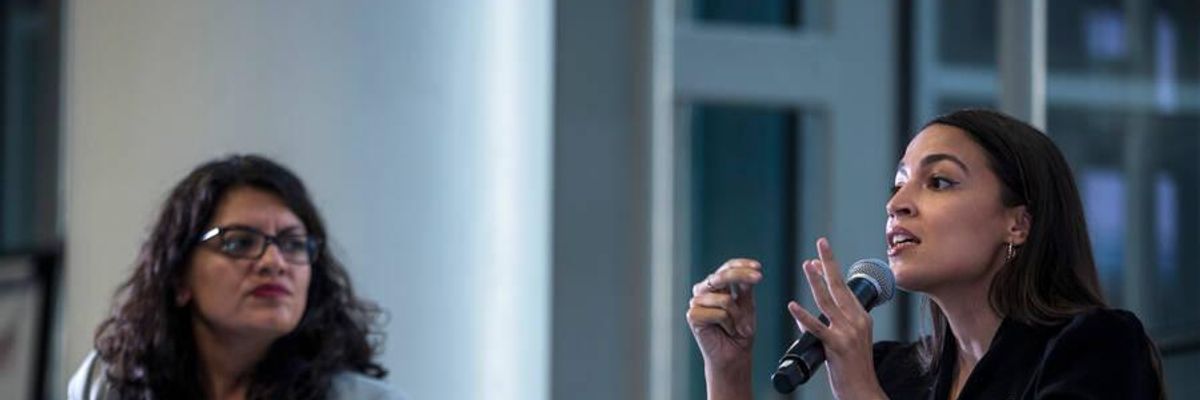While many had hoped that Election Day would result in a sweeping rebuke of Trump and Trumpism, neither a pandemic nor an economic recession were enough to deliver an overwhelming rejection. And although it's looking likely that Biden will eke out a victory, the 2020 election was in many ways a bust for the Democratic Party, which lost seats in the House and most likely did not win a majority in the Senate.
But democratic socialism, popularized by near-presidential nominee Bernie Sanders (I-Vt.), had a much better night. The Democratic Socialists of America (DSA), an organization that boasts nearly 80,000 members nationwide, endorsed 29 candidates and 11 ballot initiatives, winning 20 and 8 respectively. There are now democratic socialist caucuses in 15 statehouses, including Montana. (Disclosure: I am a nationally elected leader of the organization; I sit on the Democratic Socialist Labor Commission.)
DSA's victories, both in the primaries and the general election, have rolled in as pundits and pollsters decry socialism as polarizing and raise fears that socialist candidates will end up backfiring and getting Republicans elected. Sanders' supposed lack of electability was one of the most commonly used arguments against him in the primary. His primary opponents and prominent writers like Jonathan Chait claimed that the vast majority of Americans wouldn't vote for a socialist, and that there was no way he could defeat Trump.
While there's no real way to know for certain if that's true, it is clear that centrist Democrats aren't necessarily shoo-ins themselves. Democrat Jon Ossoff, who lost a congressional special election in 2017, looks like he will also lose this cycle's Senate race in Georgia. Democrat Sara Gideon, who raised $70 million to run against Republican Senator Susan Collins in Maine, has conceded, and it looks like Democrat Cal Cunningham will also lose his run for Senate in North Carolina. Amy McGrath, who ran as a pro-Trump Democrat, raised nearly $90 million and still lost to Republican Senator Mitch McConnell. The list goes on and on. Even Joe Biden, who seems set to be our next president, often spoke more about beating Trump than any policies he would enact once in office.
Plenty of progressive candidates also lost, but most candidates nationally endorsed by DSA sailed through. And while it's true that many of them had tough primary battles and less difficult elections on Tuesday, they still won as DSA members. All four members of "The Squad" -- a progressive bloc in Congress that includes Democratic Reps. Rashida Tlaib (Mich.), Ilhan Omar (Minn.), Alexandria Ocasio-Cortez (N.Y.) and Ayanna Pressley (Mass.) -- were reelected to the House. (Tlaib and Ocasio-Cortez are DSA members and endorsed by the organization.) Progressives also added two more DSA-endorsed members to their squad: Democratic Rep.-elect Jamaal Bowman in New York, and Democratic Rep.-elect Cori Bush, the first ever Black Congresswoman in Missouri.
Although the current iteration of DSA has been around since the early 1980s, the organization only became politically relevant during Sanders' first presidential campaign in 2015, and exploded when Trump was elected. Five years is a very short period of time to have helped elect City Council members, state senators and representatives, and members of Congress all across the country. According to a 2018 Reuters survey, 70% of Americans support a national health care plan -- due to Sanders' popularization of the universal healthcare program and to the organizing and canvassing DSA chapters, along with other organizations like National Nurses United, have done around the legislation.
DSA-backed candidates succeed for a few main reasons: They campaign on actual policies, have a vision of how to govern, and don't just depend on the fact that they're not Republicans. These policies include Medicare for All, a Green New Deal and a Jobs Guarantee -- programs that would improve the quality of life for working people all over this country. And because policies they support are so popular and inspiring, DSA-backed candidates attract dedicated canvassers and organizers, willing to spend nights and weekends knocking doors and making calls to get them elected.
Now, thanks to DSA members across the country, there is a socialist in Austin City Council and in both the Rhode Island and Montana State Houses. In Pennsylvania, there are three socialists who are almost certainly headed to the legislature in Harrisburg. Socialists in Boulder, Colorado worked alongside the ACLU to win a ballot measure that guarantees no eviction without representation, and DSA members partnered with the labor unions AFSCME and SEIU to pass Preschool for All in Multnomah County, Oregon. And in both Florida and Portland, Maine, ballot initiatives for a $15 minimum wage passed.
While it's clear that most DSA victories have been in big cities or more liberal states thus far, it's important that we don't discount the incredible organizing happening in the South and in rural areas. (Marquita Bradshaw ran a DSA-backed campaign for Senate in Tennessee but lost; Kim Roney, endorsed by her DSA chapter, won a seat on the Asheville City Council.)
And while the Democratic party is loath to give DSA any encouragement, DSA member Tlaib may have helped to secure Biden's victory in Michigan by helping to massively increase voter turnout from 2016. DSA's ideology, focused on a society that works for all of us instead of the wealthy few, is far more inspiring to young and working people than someone who is running for office just because they're not Trump. It might take the Democratic Party time to realize that (or perhaps it never will), but to the average person, political conditions are changing fast -- and DSA is playing a critical role in that transformation.

